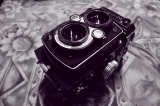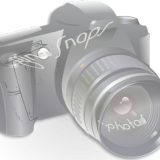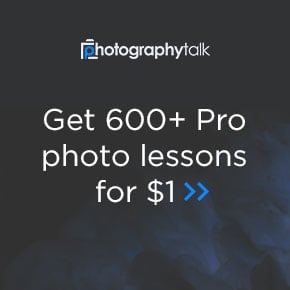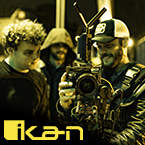- Forum
- General Discussion | Introductions | Off Topic Forum
- Photography General Discussion
- RAW vs Jpeg (All in one thread)
RAW vs Jpeg (All in one thread)
Post #275166
Yes RAW is the better for post processing. But you are incorrect on Jpegs. You can pre-edit your photos when you know how your cameras picture controls work. This means getting things like your White Balance right, deciding how much saturation you like, or how little saturation. Jpegs as far as post processing are limited. If you get your Jpegs very close, or right in camera, then you can apply those settings to the RAW file as well. I too shoot both and use most of my Jpegs. As you said having the RAW is the original file this is always a good thing. If I did not consider my jpegs as not being usable, then I would not bother shooting it all.Jelinekjava415 wrote: . The raw is easier to edit with and the jpeg has very minimal editing that you can do. So I would say raw is the better way to go cause even if you do edit the raw you will ALWAYS have the original no matter what.
-

- Stealthy Ninja
- Moderator
-
- Fuji X stuff and a 1DsIII for some reason
- Followers: 982
- Posts: 16300
-
Points:
6837
Post #289604
slytoon wrote: Jpeg-
- Sharper image than RAW
- Compressed on camera
- Higher in contrast than RAW
- Smaller file size than RAW
RAW-
- Not as sharp
- lower contrast
- higher in dynamic range than jpeg
This is utter BS.
raw isn't less sharp etc. it's just waiting to be sharpened. Jpegs are just processed raw files.
-

- mr9a
- New Kid On The Block
-
- Canon 450D & Yashica Tlr
- Followers: 3
- Posts: 20
-
Points:
0
Post #292926
Alo the photos taken in raw just feels more satisfying
Success is only determined by the amount of "want" you have inside you, and to remind yourself that you CAN!
-

- Shaun
- Newbie
- Followers: 0
-
Points:
0
Post #293414
-

- KenStephens
- Has the Hang of it
-
- Olympus E-System
- Followers: 58
- Posts: 65
-
Points:
0
Post #304897
-

- GeordieP
- New Kid On The Block
-
- Nikon D5100, D50 & S9100
- Followers: 10
- Posts: 25
-
Points:
0
-

- Stealthy Ninja
- Moderator
-
- Fuji X stuff and a 1DsIII for some reason
- Followers: 982
- Posts: 16300
-
Points:
6837
Post #307573
GeordieP wrote: Most of the time, I shoot in jpeg because I'm lazy and don't want to spend ages on each image, particularly if I'm out for the day and take hundreds of shots. I shoot in RAW now and again for special images only.
No offense, but with lightroom and similar programs this isn't really an issue at all. Just import and you've got them all organised. Then export to jpeg as needed.
I shoot thousands of RAW photos each shoot and it takes me only a few hours to edit them all (because I need to edit them).
You can set up lightroom/aperture to process your files the way you want them. It's basically the same as shooting jpeg as far as processing time goes and you have a lot more room to fix any problems you may have missed.
-

- devekmaga
- Newbie
-
- Nikon D800, D7000
- Followers: 2
- Posts: 5
-
Points:
0
Post #317717
RAW images need to be "developed" using software to get the most out of.... or, to create something that never happened, yet, with RAW file and all the light and data the sensor picked up, you can actually create a different reality.
-

- Ale Cacciatore
- Newbie
-
- Nikon D800
- Followers: 4
- Posts: 10
-
Points:
0
Post #339205
Is well explained what is , how it does works, the raw file, although many people doesn't know how to handle these information by editing software, my question is: How do you handle, when, you have a single 72 Mb raw and after post processing is 1.3 Gb??? is your Pc capable or heavy duty enough , to support this kind of data traffic?
Alessio.
-

- fotobygoodyear
- Has the Hang of it
-
- Nikon D 7100, D70, D200, P510, Canon AE1, Monolta
- Followers: 19
- Posts: 66
-
Points:
0
Post #347223
-

- effron
- Newbie
- Followers: 1623
-
Points:
129640
-

- Tfmstudios
- Newbie
- Followers: 26
- Posts: 3
-
Points:
601
Post #363151
RAW files however are the information that is not be converted to color information. This means that when editing the picture you are changing the light data rather than altering colors. This gives many more options in editing, and in my opinion makes many basic edits quicker to do.
-

- ginaSnaps
- Newbie
- Followers: 0
- Posts: 1
-
Points:
0
Post #372287
Is there anything out there that is free, if I should? I can't presently afford to buy any Adobe software. But I hope to get them at some point...
-

- Raymond II
- Lone Wolf
- Nikon D80
- Followers: 31
- Posts: 180
-
Points:
443
Post #381449
So with all this commotion towards improvements, has JPEG technology improved over the years? Do you think JPEG files will ever replace Raw files?
- Forum
- General Discussion | Introductions | Off Topic Forum
- Photography General Discussion
- RAW vs Jpeg (All in one thread)
Latest Reviews
Nikon’s retro-looking Nikon Zfc is anything but retro. Under its classic body is a host of features and amenities that make it a worthwhile compact mirrorless camera for 2024.
The Canon EOS R50 is one of the newest R-system cameras from Canon. Is it worth your money? Find out all the details you need to know in this comprehensive review.
The Sony FE 70-200mm f/2.8 GM OSS II is Sony’s flagship mirrorless zoom lens. As such, it’s loaded with features and has a top-shelf build quality that makes it a top pick!
The Leica SL2-S is an attractive, premium mirrorless camera with photo and video specs that are sure to impress. And with the legendary Leica name, you know this camera exudes quality!
Forum Top Posters
-
1TCav 5 posts
-
2Prago 4 posts
-
3Razky 4 posts
-
4Randy Shaw 4 posts
-
5Sandy Smith Photos 3 posts
-
6CaptNemo 3 posts
-
7CharleyL 3 posts
-
8Hassner 3 posts
-
9db3348 3 posts
-
10Foggy 3 posts
Latest Articles
Are you ready to upgrade your camera? Before buying new, you might consider the value of purchasing used gear to save money.
The Olympus OM-D E-M10 Mark IV is a micro four thirds camera released in 2020. It’s an entry-level system along with the OM-D E-M5 Mark III. Use this guide to determine which one is best for you!
Blue hour photography might not be as well known as golden hour photography, but it is every bit as good a time to create epic images of landscapes. Learn how in this quick tutorial!
Nikon’s retro-looking Nikon Zfc is anything but retro. Under its classic body is a host of features and amenities that make it a worthwhile compact mirrorless camera for 2024.
Moving from taking snapshots of your dog to creating beautiful images doesn’t have to be that difficult! Use the tips outlined in this dog photography guide, and you’ll get better results in no time.
Acrylic print photos are a beautiful way to display your favorite images. But they don’t come without some questions. Get all the answers you need about this medium in this guide!
Where do you get your landscape photography inspiration? Is it from masters like Ansel Adams? Or perhaps viewing art from other genres? We’ve got these and a few other sources for you to check out!
The Canon EOS R50 is one of the newest R-system cameras from Canon. Is it worth your money? Find out all the details you need to know in this comprehensive review.


















